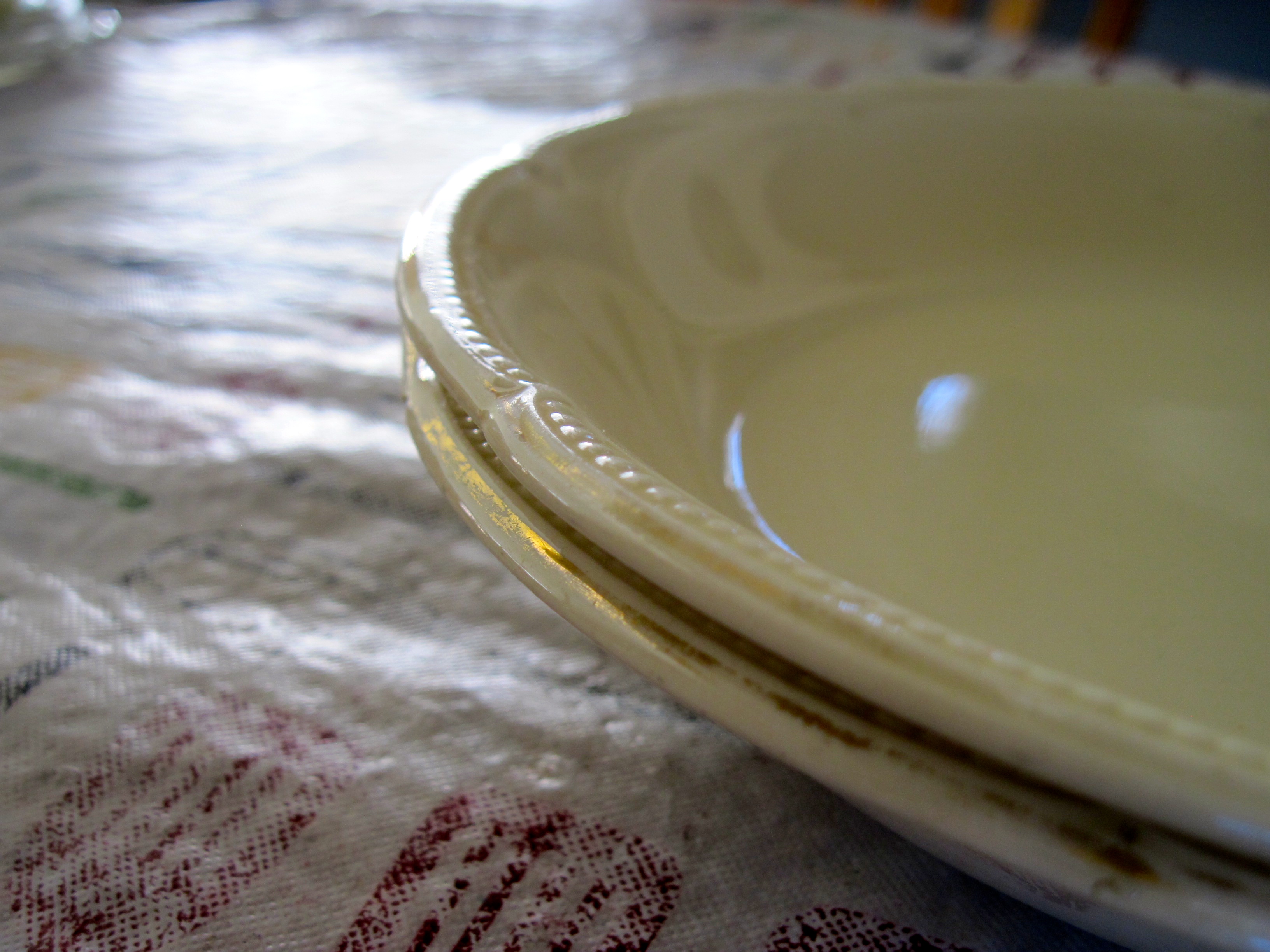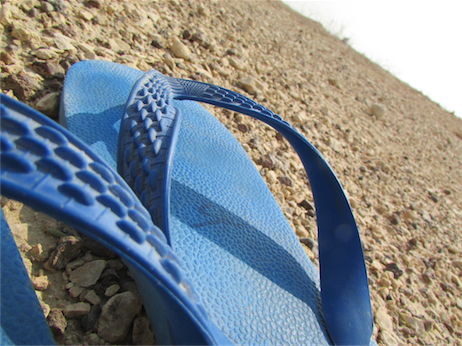I stand in the line at Subway in Alberta, shifting nervously. Each time the young high school student asks me about which bread I want, which meat, or which vegetables, I am confused. I have never been asked these questions before. I don’t know what kinds of bread there are. They are on the sticker on the glass. He points to them. I scan them quickly, trying to hide my shame. I realize later that these questions are predictable, like driving a road you have been on before: you know the landmarks to look for before your turn. But I have never driven this road before. When you know what they will ask, the quick words spilling out of the mouth mean something. I don’t know what these words mean yet. I do not belong.
I am playing on the beach by the Arabian sea with my siblings, building cities in the sand, as young ladies walk by trying to talk to us. Their hair and scarves blow in the wind as they giggle to each other. They pinch my cheeks, asking me my name – asking me where I am from. This is what everyone asks me. I stare down at the sand and continue my digging. If I ignore them long enough, they go away, usually. I do not belong.
I am in Kindergarten in a small school that is run out of a large house with just a few classrooms. I’m wearing the school uniform of a white shirt, grey shorts, white shoes, and everyone is staring at me. I am in the courtyard. It is lunch time and I am the only kid with white skin and blonde hair. The only one. My stomach is a tight knot, and I wish I could cry, but that would only bring me more attention. I do not belong.
I am walking outside. I am all ages. I am almost anywhere. “Look at the angrez,” the ‘English or white-people’ a child, or a parent, or an old lady or young man calls. Everywhere I go am angrez. Nowadays I want to tell this child I’ve lived here longer than he has. But I know the anger their words build in me is far stronger than any emotion that was put into those words. They are children.
It is summer – the end of it, and I am riding my bike to my grandparents house. We have been in Canada for almost two months, moving from place to place, visiting family. The joy of ice cream, dill pickles, good burgers, real cheese, crunchy peanut butter, sweet corn, a community swimming pool, riding bikes around town and picking raspberries has begun to wear off. I miss my room in our house at home where we have to mop almost every day to keep up with the dust that collects everywhere, and the gentle thrum of the ceiling fan above my and my brother’s head as we sleep. I miss our little car port where my dad parks our old white nissan. I miss watering the plants on our flat roof, splashing water onto the ground so my bare feet don’t burn on the hot concrete. I am ready to go back to Pakistan. I do not belong here.
I stand at the doorway to my dorm room in Saskatchewan, not sure how to ask my roommate. “Can you help me use the washing machine?” He is confused. I’ve never used a washing machine like this. He walks me though. He is patient and kind. I’m thankful I’m spared any further embarrassment.
I am twelve. My parents are talking to someone in Sindhi. I am listening, not quite understanding the complexity of this adult conversation. I tug my dad’s sleeve. “What is he saying?” My dad explains.
“He doesn’t speak any Sindhi?” They talk like I am not here, like I don’t understand what they are saying. I don’t argue because I don’t. Not all of it. Not enough. Not enough to be enough. I don’t belong.
I am walking along the street to go buy yogurt and some vegetables for our lunch. My mom has sent me out because she forgot to ask my dad to get the things when he was out shopping earlier in the morning. A couple kids shout “ching chong sheea cheecho”. This is apparently what Chinese sounds like to them. And they think I am from China. They have never seen a foreigner before.
I am in Grade 8 in Canada. I do not know the English word for okra. I’ve never learned it. My classmates look at me like I’m crazy. I’m staring at the word now, spelled out on paper, letting it sink in. I catalogue the words I know where the Urdu comes first. Electricity. Market. Storeroom. Lentils. Flatbread. Tea. Why am I like this? I do not belong.
I am twenty years old, sitting in a taxi on the way up the hill to my old boarding school for my sister’s graduation. I am overjoyed to be back in Pakistan to visit. Everything is familiar and strange at the same time. The evening air blows in through the open window of the small Suzuki Mehran. I am speaking to the driver in Urdu, talking about my time in Pakistan and asking him about himself. “Your Urdu is not very good.” I smile. Thank you? Do you say thank you to that? Only twenty minutes ago someone in the airport told me I speak Urdu very well. My ego had a short stint of happiness. It’s over now, as I look out the hills at the pine and spruce trees going by.
I am standing at the post office asking to mail a letter. I am speaking Urdu, and I am thirty years old. The man is asking for my national identity card. I do not have one. I tell him but he doesn’t understand. I have a passport. I show him a photocopy. He is still confused. “But you have a CNIC card too, right?” He is not listening. I pull the blue passport from my pocket and place it on the counter. At last he believes what I’ve been telling him: that I don’t belong. But inside, I’m glowing.
My wife and I walk through the bazaar close to our house. Our infant son is asleep at home and we are on a night out together. It is winter, I am wearing a chadar wrapped around my shoulders and she has her head covered. We eat street food and later step into a crockery store, looking at the various pots and pans, wanting to replace our pan that is quickly wearing out. The shopkeeper is a brusque bald man with little time for dithering. He knows his pots and pans. He asks us if we are from Gilgit (a city in the mountains of the North). I am so happy. My wife and I look at each other and smile.
I am walking down the street, going to buy a few groceries from the store. No one looks at me. No one stares. No one does a double take. This is happiness. To be unseen is to be seen. To be unnoticed is to belong. Do I belong?
I am getting motioned over at an army checkpost on the way to the airport. The soldier asks me if I have foreigners in the car. Yes, I say. My sister, brother-in-law and their children are with me. I go with my brother-in-law to the small booth where an officer sits with a large ledger. I have my passport ready to show him. He asks for my brother-in-law’s. He does not ask for mine. He asks me where I am taking them. I say to the airport. He makes a call. He tells his superior officer of some foreigners passing through. They have a Pakistani driver. Yes yes, it’s all fine. They give my brother-in-law back his passport. I wait for a moment, confused, and then turn in delight. I am the Pakistani driver.
I sit having chai at a chai shop, talking to the owner as he preps the lunch dishes they are making for the day. He knows I am Canadian. Another man sits, smoking a cigarette, chiming in on our conversation here and there. Near the end he asks if I am from Gilgit. I smile. No. And I am in heaven.
I am walking down towards the house we are staying in for the summer. A teenager passes me on the road. “Hey bro.” He is trying out his slang with me. “Are you from China?” I laugh. This again? Has this guy never watched a movie?
“No.” I laugh. And continue on my way. He calls from behind me.
“Where are you from?”
This question only gets harder these days. Canada doesn’t describe it. Sometimes if I’m feeling subversive I say Lahore, where we live now, but that’s only been the last four years. I feel deceptive if I say Pakistan, but in those moments when I doubt my claim, it seems strange that I can say I’m from a place that I’ve only spent ten years in, and really mostly in my adult life. And here I am, living more years in a place where I feel, inexplicably, that I am entwined with. So where am I from?
I’m from never belonging. I’m from running down the sand dunes on the banks of the Indus and feeling the river is mine somehow. I’m from street food, and drinking chai, and buying fruit off carts on the side of the road. I’m from not looking women in the eyes, and from hugs before handshakes with men. But I’m also from liking my privacy, and not liking to talk about how much money I make when people ask. I’m from telling almost everyone I meet that no, I have no way to sponsor you to move to Canada. I’m from politely demuring from offers of chai by shopkeepers. I’m from loving bacon, and having to keep it a secret that I eat it, and from thinking and dreaming in English. I’m from needing a piece of paper every year from the government to let me stay in the country I spent most of my childhood knowing as my only reality. I’m from cherishing my Canadian passport as one of the most precious things I own – the first answer I give on one of those “what would you save in a fire” questions.
I’m from this land, this people, this language, but I’m not. I am not Pakistani, but there is no me without Pakistan. You don’t live this many years in a place and not have it be a part of you – a part of the way you think and feel. When Pakistan went to war with India for a week in May of this year, an irrational nationalistic hatred pounced out at me from a place I didn’t think existed. When my wife asked if it wouldn’t be prudent to get a flight out to another nearby country until the political tensions relieved, I couldn’t explain to her that I felt like I couldn’t abandon this land I would almost rather fight for than leave. This feeling is the same feeling I felt a few days ago as I stood with my four year old and two year old sons on the way to the bus stop in the town nearby as two Pakistan Air Force JF-17 fighter jets roared in wide circles over the hills. These are our planes. I could feel it. When I stood in line with the kids I was coaching from my school during a tournament in Karachi, tears flooded my eyes as a video of the Pakistani national anthem played showing these scenes of mountains, rivers, people and places that were mine – that were threads of the cloth I was sewn from. This land is a part of me. As I drive in the mountains, or walk in the hills, or sit in the twilight of the city, or drink chai under a grimy fan, I belong.
I sit on a rock in the forest right next to the path I run some mornings here in the summer, in the foothills of the Himalayas. The cicadas are buzzing in the trees, and birds flit from branch to branch as the morning sunlight slants in through the oaks and pines. I breathe in the smell of the forest: spruce, pine and leaves of the undergrowth. I know this place, and I feel this place knows me.
I am sitting outside the Hungarian Embassy in Pakistan. I am there to get my citizenship verified. My grandmother happens to be Hungarian and only within the last couple years has my father realized he could have his citizenship as well. And now that he has completed his, my brother and I can complete ours. I am waiting to be called up to the window, sitting under an awning in the breeze of a pedestal fan. It is a hot day for Islamabad, the capital city. A young Pakistani man is sitting across from me in a maroon suit. I ask him why he is here. He is applying for a scholarship to study in a university in Budapest. He looks clean, professional, and nervous. “Are you Hungarian?” he asks. I am not sure what to say. I realize suddenly that I’m basically here at the embassy to say I am. And if this process can be completed, saying yes to that question will be perfectly true. How can I be Hungarian and not Pakistani? How can I truthfully be allowed to be from a place I have never lived and don’t speak a single word of the language, and yet feel I can’t lay claim to a place that has been the home for three generations on my mother’s side, and a land has clothed, fed and raised me for twenty two years of my life?
I am thirty-two. I am carrying bags of gravel from the trunk of our car to the parking area of the guesthouse we are staying at. I have just driven down to a spot outside a collection of shops and houses where an old man is sitting on a seat cushion laid on top of a stone wall, smoking a cigarette. He greets me with a smile and we talk about the per-foot cost of gravel and about memories from Murree in the years passed. While we talk, a young man shovels five cement bags worth of gravel and helps me load them into my car. Back at the guesthouse, I rake the gravel across the front half of the lot where the mud collects in the monsoon rain. Three young boys walk by the chain-link gate. “Hello,” they say in English. I smile at them. “Where are you from?” They ask. They are about the age of the kids I teach at school. I speak in Urdu. I tell them I’m from Canada, but I live and teach in Lahore. I ask them where they are from.
“Peshawar,” they say with some pride in their voices. I ask them if they are visiting for long, and if they are staying in the apartments down the road. They say they are here for another week or two. I ask them if their schools are starting soon. I tell them mine begins next week. They all have different start times. There is no anger. There is no frustration. I am still raking the gravel between the conversation, and they smile and begin to move on down the road. “See you boys later,” I say. And that is that. There is no shame. There is no deep questioning of myself and of my place in this world. I am simply myself.



